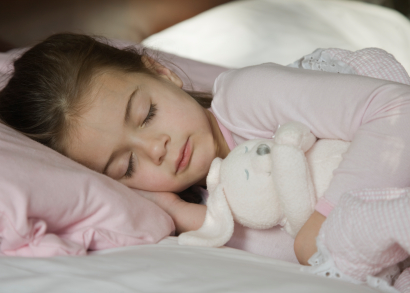
Healthy Sleeping
Abûn Barzah in narrated that,
"The Prophette disliked sleeping before performing the 'Ishâ (night) prayer, and sitting for chatting
after it.
He also narrated that,
"The Messenger of Allah used to delay the 'Ishâ' prayer till the first third of the night has passed. He also disliked sleeping before performing it, and sitting for chatting (or conversation!) after it. He also used to recite between 60 to 100 verses in the Fajr (Dawn or early morning) prayer, and would leave (the mosque) when we could recognize each other's faces (i.e. when the morning light had broken). "
' Reported by al-Bukhârî, "Book of the Times of Prayer," hadîth no. 568. Reported by Muslim, "Book of the Mosques," hadîth no. 1026. . It was also reported by an-Nasâ'i, Abû Dâwûd, Imâm Ahmad, Ibn Mâjah, Ibn Hibbân, atTirmidhî, ad-Dârimî and others.
Explanation of the Hadîth
The direct implication of this Hadîth is that the best hours for healthy and sound sleeping are those of the early night, right after performing the 'ishâ' (Night) prayer. That is why the Prophet disliked staying up late after the 'Ishâ' prayer, unless there was a necessity to do so. He also told his companions about the Prophet Dâwîd EJ who used to sleep half of the night, pray for one third, then sleep the last sixth part of the night.
Scientific studies have proven the authenticity of what the Prophet said, for the following reasons:
1. The various atmospheric layers created by Allâh the
Almighty, to protect life on earth, shrink gradually, starting from sunset until they reach their ultimate degree of shrinking at midnight.
Then, they start to gradually expand until they reach their maximum thickness at midday when the sunrays are perpendicular to the earth. These protective layers include the Ozonosphere, the Ionosphere, the Radiation belts, the Magnetosphere and the Exosphere.
When these layers shrink, the earth becomes more easily
exposed to several cosmic dangers.
2. Specialized sleep-related studies proved that man is
always in urgent need for sleeping a minimum number of hours in the early hours of the night. This helps him adjust to his inner biological hour created by Allâh the Almighty inside each one of us.
Those early sleeping hours regulate
man's practical, academic and spiritual activities, plus regulating his body temperature and stimulating his
memory. Moreover, it compensates for any deficiency that affects his immunity system.
A number of small glands control man's awareness and consciousness, particularly a very small gland. called the "Pineal Gland." This gland is a small, cone-shaped organ in the brain of most vertebrates that secretes the hormone
melatonin.
Being an antioxidant, the melatonin protects the neurons and supports the body's resistance against viruses and bacterial attacks. This hormone also improves the person's sleeping ability as it works against insomnia (by regulating our sleep-wake cycle), and decreases the incidence of heart diseases, opacity of the eye lens, malignant tumors, and in general it delays the symptoms of early senility.
Another very small gland is the "Hypothalamus" that surrounds the third ventricle of the brain. It controls the degree of the person's consciousness and wakening through controlling the melatonin secretion by the pineal gland and the adrenalin secretion by the pituitary gland. The hypothalamus regulates sleep through hormone fluctuations that occur during each 24-hour period, usually correlating with periods of light and darkness.
Thus, the hypothalamus functions as a regulating clock to control all the biological activities of the body, giving them the ability to coordinate
with the night and day cycle, and to achieve the needed physiological harmony and coordination between all body systems.
The "optic chiasma" cells falling lateral to a set of crossed nerve fibers beside the pituitary gland, has a special sensitivity for light as it falls on the retina during the day. When sunrays fall on the retina, the optic chiasma sends a message to the biological hour of the body, which, in turn,
stops sending orders to the "pineal gland" to secrete melatonin.
Vice versa when night falls, it sends a special message to the pineal gland to re-secrete melatonin.
Since darkness increases gradually from sunset to reach its maximum at midnight, then decreases gradually until dawn, the wisdom behind disliking sleeping before 'Ishâ' prayer or sitting for chatting after it, is clear. The Prophet does not want the Muslim to waste praying 'Ishâ' prayer or missing the best hours for sleeping at the beginning of the night. Obviously, he would not have known this information unless he had the Divine Revelation from Allâh the Almighty.